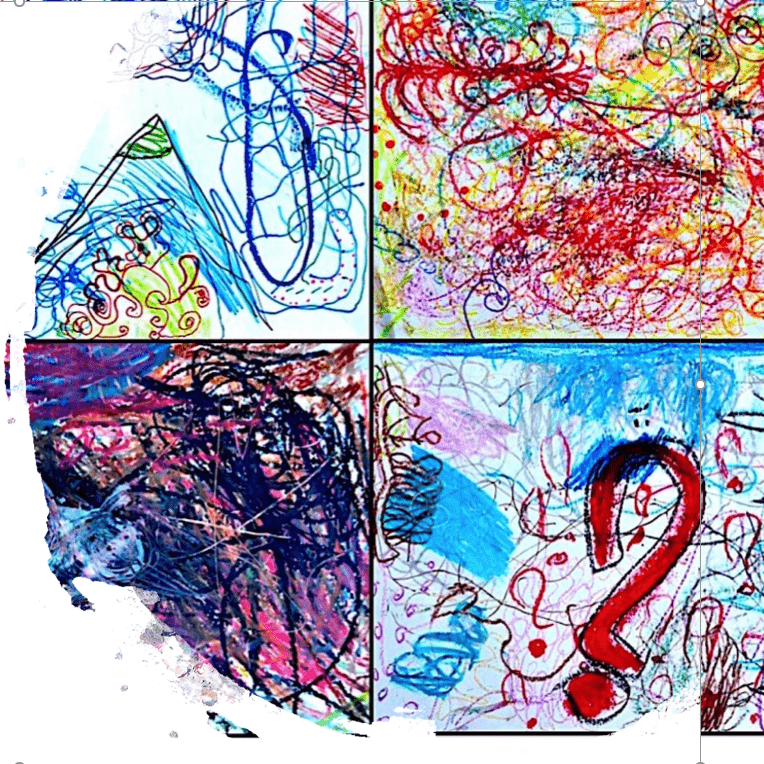LECTURERS

ŠPELA RAZPOTNIK, PhD (Slovenia)
has a PhD in the field of social pedagogy and works at the Faculty of Education of the University of Ljubljana. She is a professor at the social pedagogy department, she also lectures as a guest lecturer elsewhere in Slovenia and abroad.
- She is active in various associations, especially at Kralji ulice. Homelessness, social exclusion and solving innovative and dialogical solutions to situations of exclusion are a part of her field of research as well as various developmentally innovative projects such as the development of flexible entry into the living space of vulnerable families. She is most attracted to participatory research, in which research “subjects” are not only the subject of research, but also active, key and co-creative elements of the process.
- She also writes and publishes in the field of inclusion, work with marginalised groups, mental distress, the transition of young people to adulthood and cultural animation. She devotes much of her time to mentoring students on their path of research and development at all levels.
- She includes techniques and approaches of theatre of the oppressed and other elements of cultural animation into her work on various levels that help revive groups and ignite potentials in them, which are like smouldering embers blown into stunning fires by action and cooperation of that group.
- Špela says for herself that: “I like to work in my free time; I like to drink coffee during working hours, preferably in good company.”
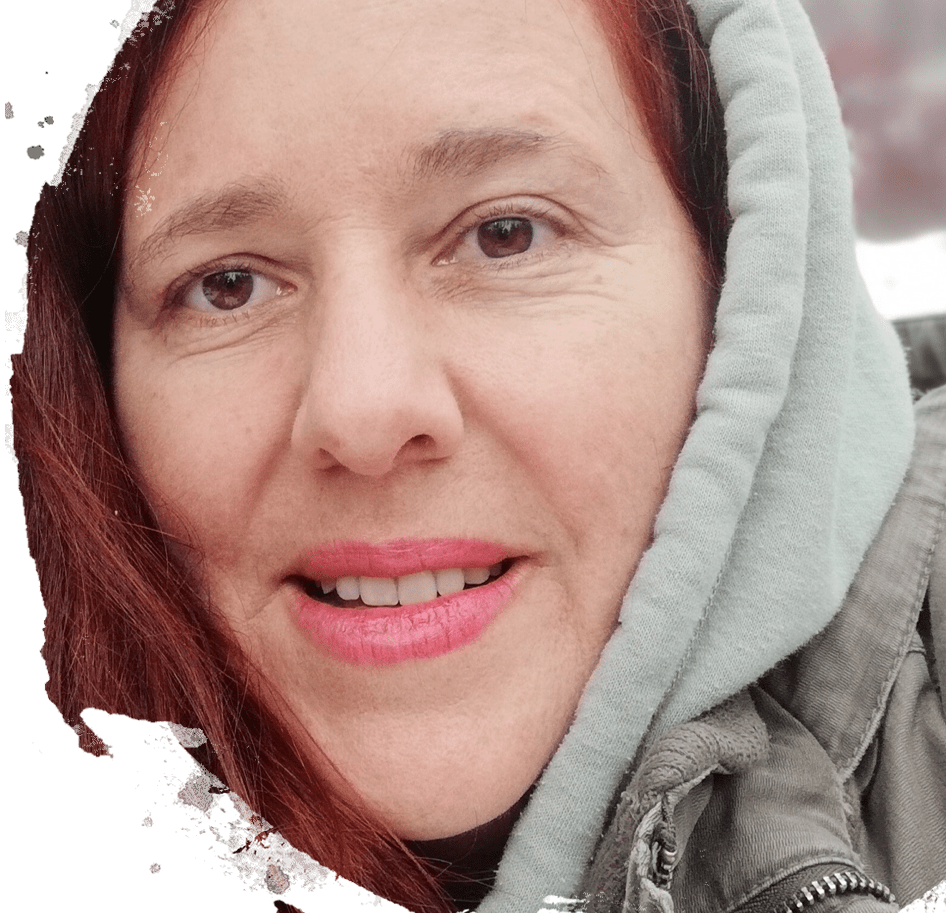
KRISTINA DEBENJAK (Slovenia)
is a university graduate social pedagogue, an associate of Faculty of Education in Ljubljana at the department for social pedagogy, active in the field of nongovernmental youth sector KUD Transformator, program designer and president of the Cirkokrog association.
- She has 15 years of experience with the creative media of theatre and circus pedagogy. Through workshops, youth exchanges and (including pilot) projects, she co-creates social and community spaces based on interconnection, acceptance of diversity, building a supportive community and reflecting on our social roles and positions. An important experience of the power of community theatre and theatre of the oppressed was her 7-year involvement in the theatre group Kralji Ulice, OdPisani, which included homeless people, people with experience of being homeless and people without this experience who are interested in theatre.
- She explores the themes of community work, expression and action through physical and motor activities, inclusion and creation of mixed communities. She is currently researching the theme of the theatre of the oppressed as a method for joint research into the psychosocial distress of young people and the role of their supportive communities.
- She spends his free time with her dog Ajša. With it, she learns canine communication, learns about all the deer homes in the woods, and looks forward to small (big) accomplishments, such as quiet one-minute cat watching in the garden.
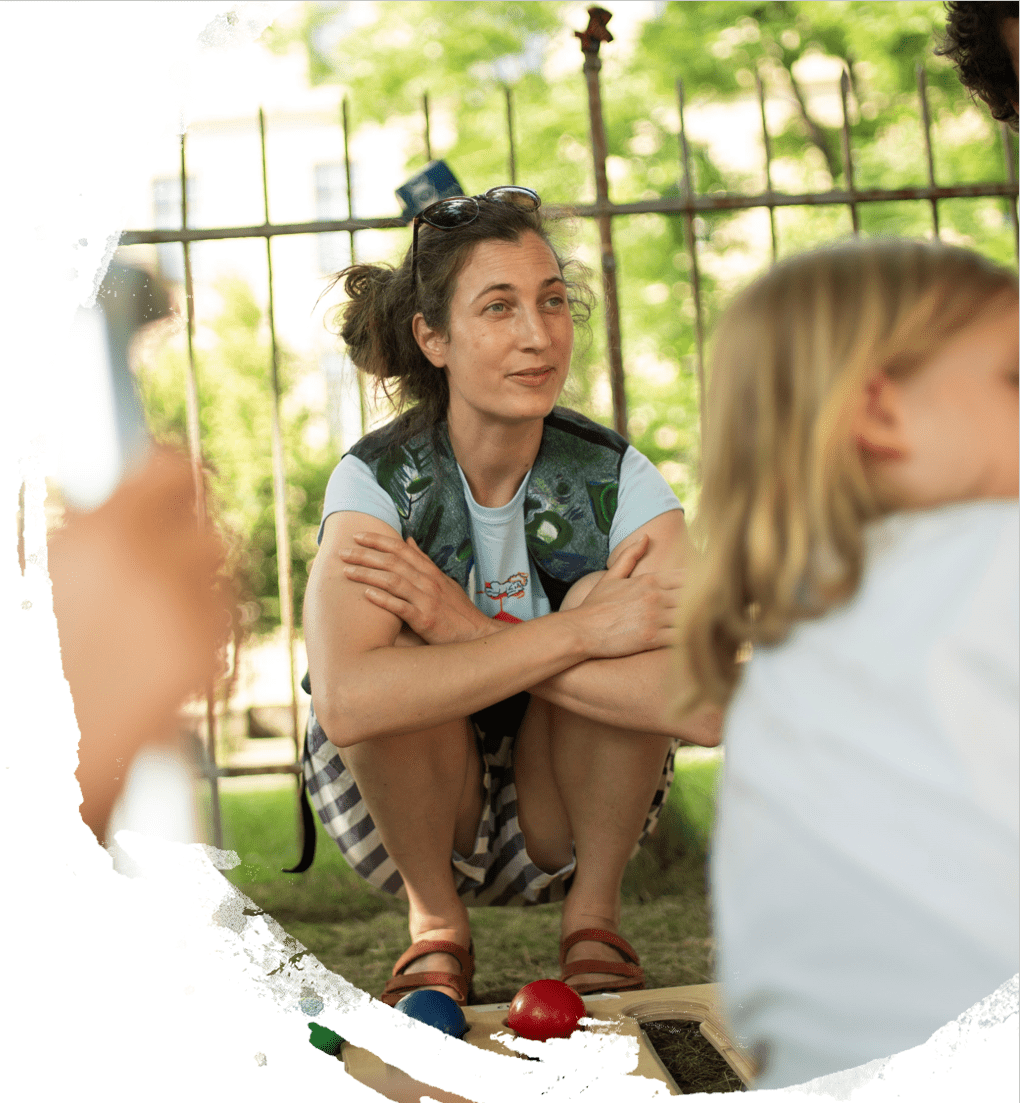
THEATRE OF THE OPPRESSED AS A TOOL OF TRANSFORMATION WITHIN (SOCIAL) PEDAGOGICAL WORK
Theatre of the oppressed comes from pedagogy of the oppressed developed by the Brazilian philosopher and educator Paolo Freire (1921-1997). Based on his ideas, theatre of the oppressed developed and carried out into the world Augusto Boal (1931-2009). Pedagogy of the oppressed as well as theatre of the oppressed are based on paradigmatic turn of classical education. They play with the idea of the ignorance of the learner and the omniscience of the learner as well as the idea that knowledge or cultural activity (e.g. theatrical) is something sacred and a property of the elite whereas the masses have yet to reach.
Both Freire and Boal proceed from the premise that people and communities carry knowledge and culture within them; teacher, pedagogue, animator are those who help communities express, explore, ignite and after all celebrate. This kind of approach is called liberating, critical or radical education; even if the only radical thing about it is a demand towards education to change the world for the better instead of just maintaining the current status and power structures.
The legacy of the theatre of the oppressed is spread all around the world; it is strongly present in social pedagogy, youth work, cultural animation, andragogy, social work and other disciplines whose subject is the study of a human in the world and the world in a human.
Diverse techniques, offered by theatre of the oppressed can be used on a spectrum from getting to know each other and connecting the group, through exploration of common grounds to more transformative aspects (the ones which carry the power of change inside), which definitely have a potential within the theatre of the oppressed.
This lecture will illustrate the meaning and usefulness of the philosophy and practice of the theatre of the oppressed through practical examples in social pedagogy. In doing so, we will draw from our many years of practice of using various techniques of theatre of the oppressed with different groups of people who have one thing in common and that is that we are always surprised by the power of such practices.
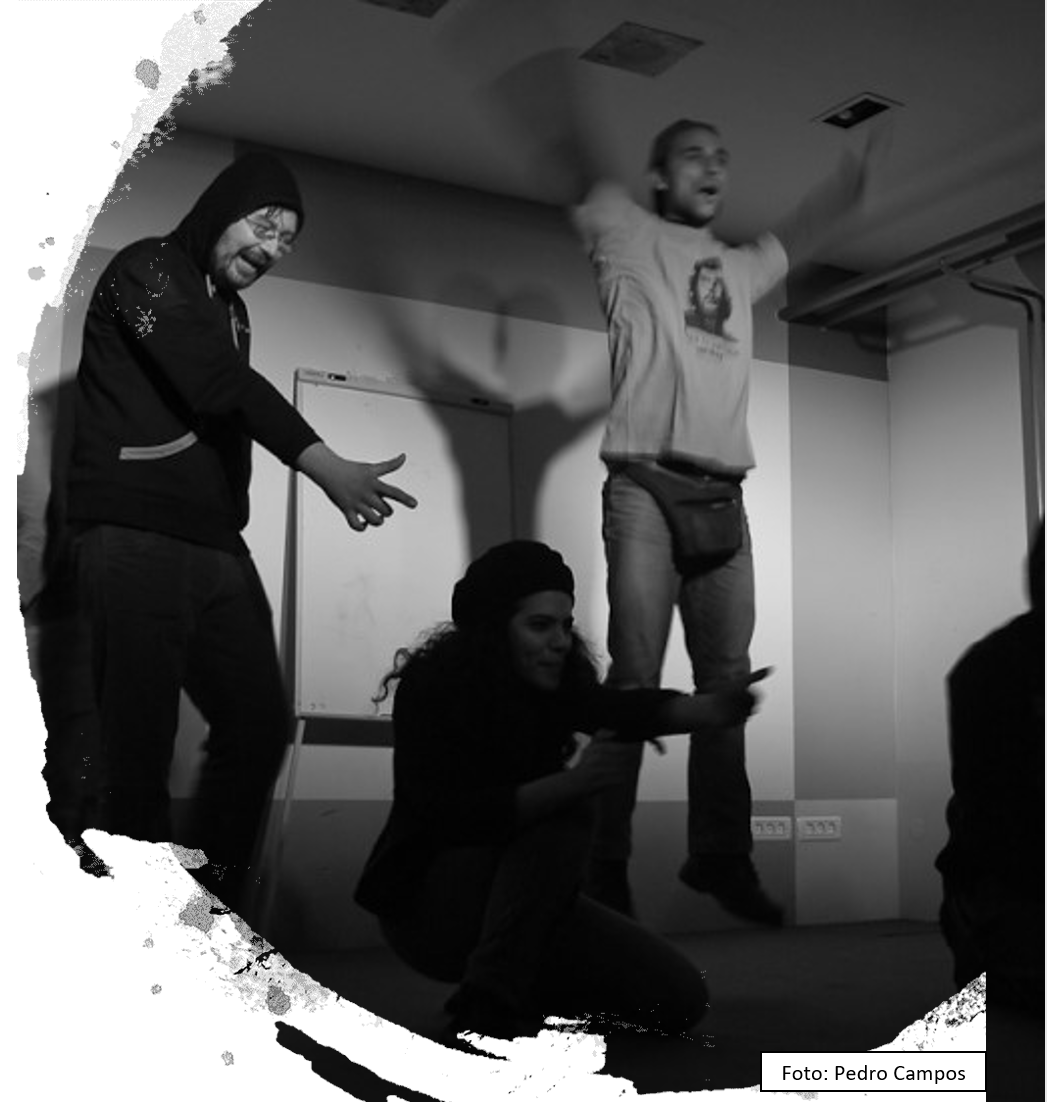
KATARINA HABE, PhD (Slovenia)
is assistant professor at the Academy of Music of the University of Ljubljana. She also regularly collaborates professionally with the Knoll Institute for music therapy and supervision.
- She is psychologist and musician who combines her love for researching the human psyche and music in the interdisciplinary field of music psychology. Her research interests include the effects of music on the overall well-being of people – on the one hand with musicians and on the other with the general population. She sees music as a tool for inclusion, which can with its universality unite diversity, harmonise and enables every individual to authentically express himself or herself through it. Katarina is inspired by the many effects of music on the physical, emotional, mental, social and spiritual level. She sees her mission in transferring useful research findings on the effects of sound and music for the benefit of the individual and society.
- Katarina says for herself that her state of mind is ecstasy (flow) – playfulness, joy, sparks of beauty in the flowing dance of Life. She likes to step outside the box and look at people, things, events as a child who marvels and explores and gratefully accepts what comes his way.
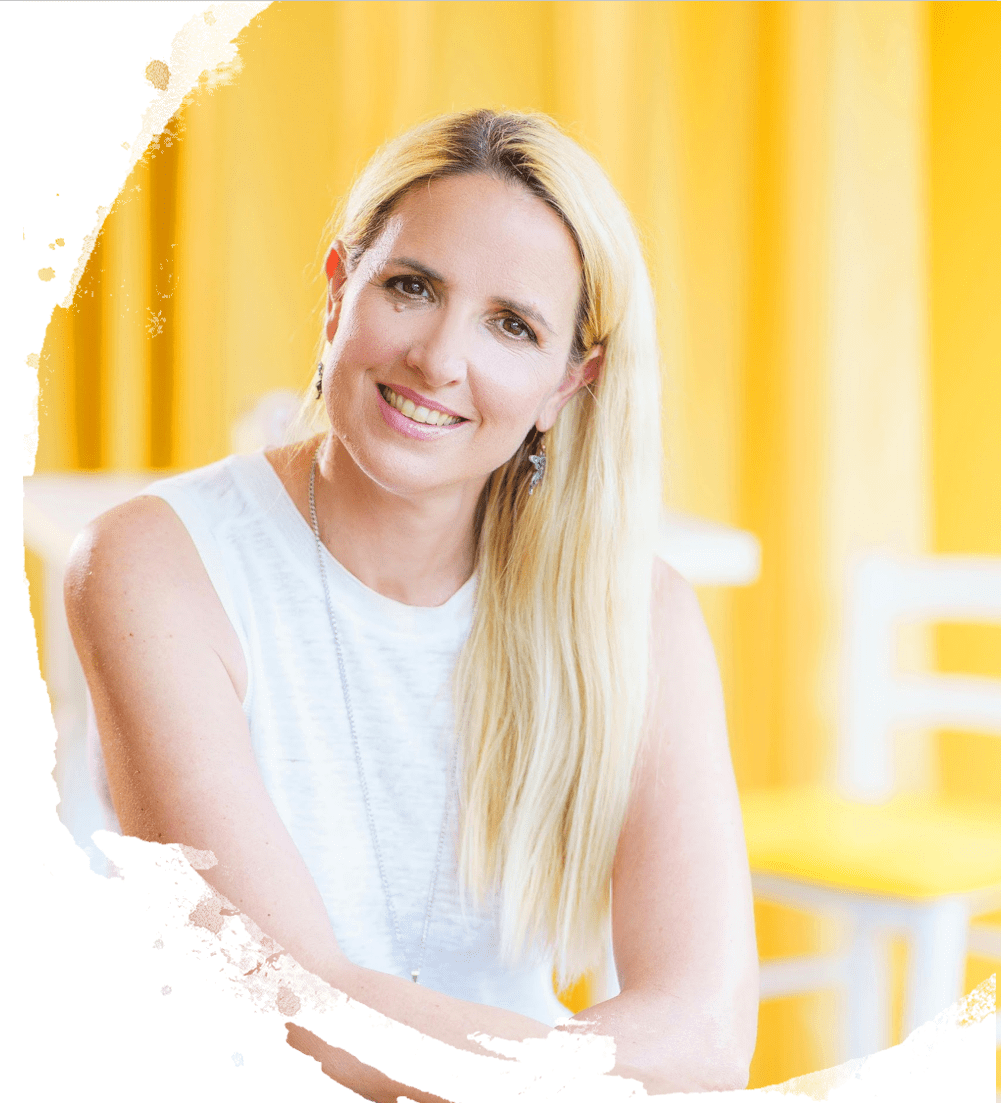
MUSIC AS A TOOL FOR WORKING WITH AT-RISK YOUTH
Music is a universal language, which speaks to every single individual, connects and unites as well as carries many positive effects for individual and society. The influence of music on the well-being of a person can reflect in different levels of human activity: physical, emotional, cognitive and spiritual level. Music elements such as tempo, rhythm and frequency structure directly influence our physiological responses. In terms of cognitive level, appropriately chosen music can encourage higher attention and concentration, memory, abilities of spatial-temporal reasoning (the core of abstract thinking) etc. At the spiritual level, it gives us meaning and connection with our essence.
Music enables contact and touch to vulnerable groups as it addresses and invites into this relationship effortlessly, safely, lovingly and with respect. Music can build bridges where they have been broken down and we need to rebuilt or just strengthen them. Music enables inclusion as it is open for everyone and so it enriches the lives of everyone. Music can be used in receptive (listening) and active way (acting, singing). Its positive effects are used in music therapy, which turned out to be an effective approach when working with vulnerable groups.
This lecture will answer the following questions:
– Why is music such an effective tool when it comes to working with vulnerable groups?
– How can we use music in our work with vulnerable groups?
– When and where can we use music in our work with vulnerable groups?

ANDREJA VUKMIR BRENČIČ (Slovenia)
is a marriage and family therapist, supervisor, publisher and editors of the books Celostni razvoj otroških možganov, Vzgoja brez drame, Vihar v glavi. She works at Strokovni center Planina as a counsellor and family therapist and she also has a private family therapy practice.
- She lectures and facilitates various workshops for working with vulnerable groups of parents, especially parents of children with emotional and behavioural disorders and conducts supervision for employees in various social welfare and educational institutions.
- Her great love is yoga as she has lived in India for several years. Another love, however, are the hills (this moment due to writing a phd quite on the sidelines). She enjoys her private life with small children from her third family generation.
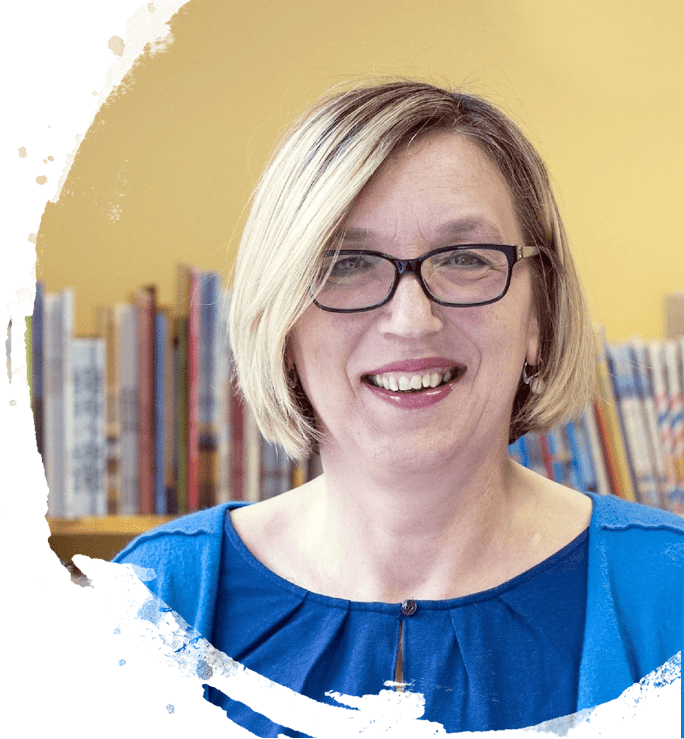
WORK WITH VULNERABLE FAMILIES
The involvement of parents or guardians in the process of treating children is essential for their recovery as they represent their most important source of support. Unfortunately, there are major problems with the participation of parents of at-risk children in psychosocial and therapeutic programs where they deal with the mental health of children, especially in professional institutions where children with emotional and behavioural disorders are placed. These are extremely vulnerable families with many external and internal problems, which present a big obstacle when it comes to including these families into therapeutic programmes. We can also talk about ‘perspective deficiency’, especially those who are economically, socially and educationally disadvantaged, do not understand therapy and their expectations are completely different from the goals of therapists and social workers.
Despite the difficult obstacles we face in working with these families, research shows that there are interventions that can increase the involvement of these families in various treatment and care processes.
Of course, it is necessary to recognize a deep emotional irregulation of these parents that prevents them from establishing a safe relationship, so when working with them it is necessary to establish a relationship that allows them emotional regulation and security.
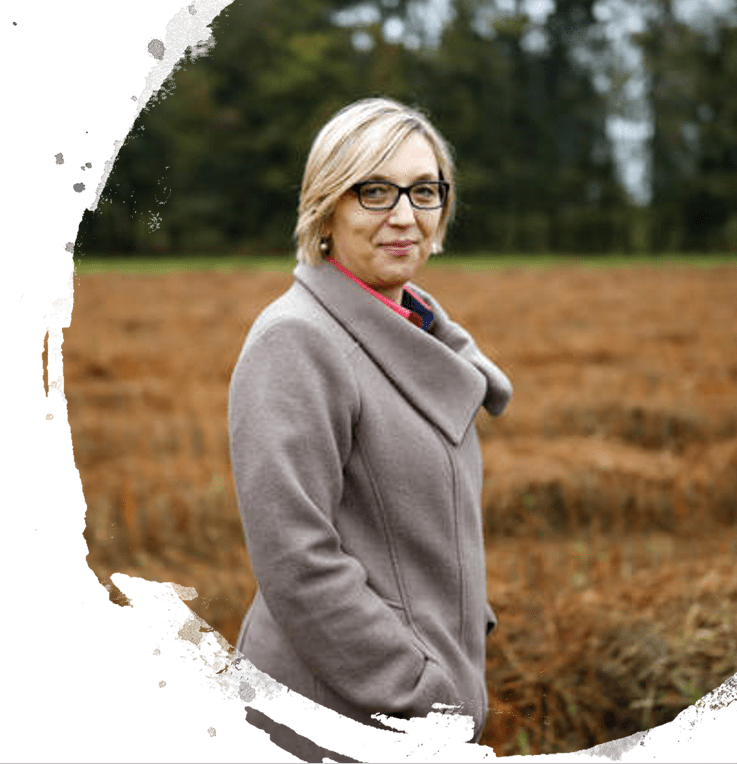
Dr. Phil., Mag. Phil. HUBERT HÖLLMÜLLER, MSc (Austria)
PROFESSIONAL BIOGRAPHY:
- Sponsion and Dissertation at the Carl Franzens University Graz in Social Philosophy
- Master of Science at the Sigmund Freund University Vienna in Councelling, Supervision and Organizational Development
- Professor for Social Work with focus on Youth at CUAS, Carinthian University of Applied Sciences
- Research issues: Philosophy of science, Social work with children and youngsters, International Social Work, methods, alternative drug withdrawal, Western Sahara Conflict
- coordinator of the double degree program with the Technical University Cologne
- coordinator of the working group “children and youngsters” at the Austrian Society for Social Work
- part time lecturer at the Technical University Cologne
- voluntary work at the emergency overnight accomodation for youngsters in Klagenfurt and at the crisis intervention team of the Red Cross Klagenfurt
- Recent publications:
- Höllmüller, H.: 2021 “An Austrian Social Work Project in Western Sahara” in Socialno Delo, letnik 60, 181-186
- Marianne Forstner, Hubert Höllmüller, Hans Peter Radauer: 2021 „Kinder- und Jugendhilfe in
- Österreich Positionspapier; Arbeitsgemeinschaft „Kindheit und Jugend“ der Österreichischen Gesellschaft für Soziale Arbeit (ogsa)
- Höllmüller, H.: 2022 „Schwelle“ in Fabian Kessel, Christian Reutlinger: „Elementaren Einführung: Sozialraum“ (Springer VS)
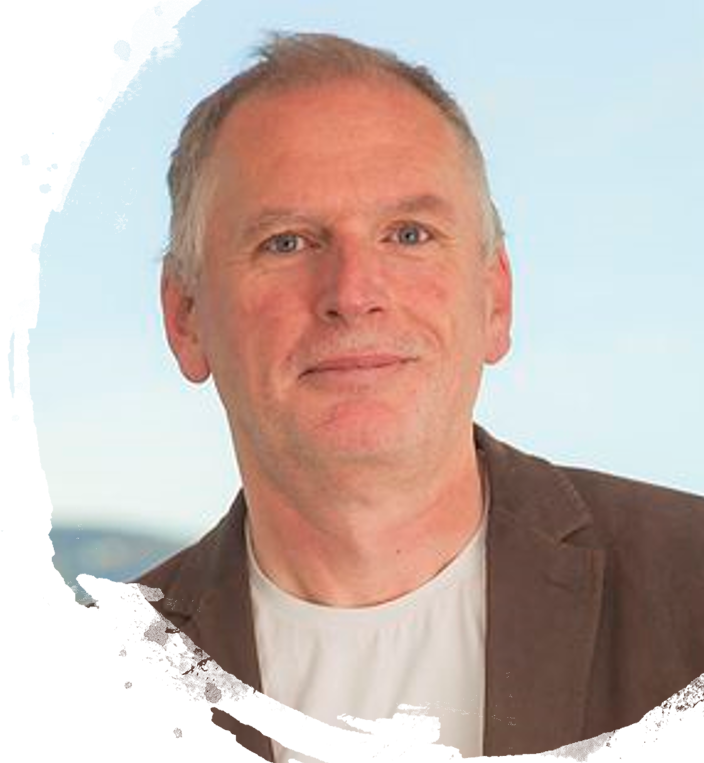
CHILD AND YOUTH CARE IN AUSTRIA: CHANGE IN OR CHANGE OF SYSTEM?
A profound analysis based on research and other insights leads to the conclusion that the child and youth care system in Austria (still) is paternalistic, pathologizing and expertocratric. There is a naive belief in progress combined with an aversion to outcome orientation framed with capitalistic market games to get access to public fundings. At the same time there are committed persons and groups who create and implement successful innovations. (The main five are: social pedagogical diagnosis, family group conferencing, professional foster parents, social-pedagogical shared apartment combined with single housing, associate housing in cooperation with low threshold crisis shelter etc.)
So the point is why these innovations are not rolled out in the whole system. As these innovations include much more participation, empowering and outcome orientation, a system as described above will not make a roll-out by itself. Can other systems like politics, science or mass-media initiate a change of the system? Or can the involved families or youngsters do it?
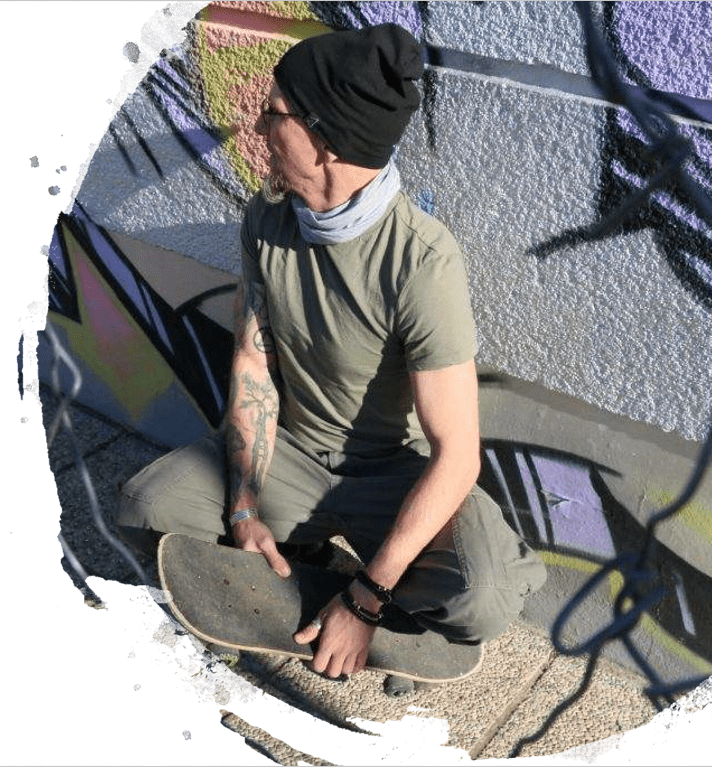
RAFAEL LLOR (Spain)
has got University degree in Pedagogy, Teaching and Social Education (habilitation). He has got diploma in Systemic Child and Adolescent Trauma Therapy from the EXIL-IFIV Institute of Jorge Barurdy and Maryorie Dantagnam in Barcelona, and he is expert in systemic family therapy from the School of Family Therapy of the Region of Murcia. He is in the process of completing a university degree in psychology.
- Rafael is specialist in intervention and community development with children and young people from a systemic perspective. He has more than 25 years professional experience specialized on intervention with children and young people at risk, with serious behavioral and mental health problems, and their families. Over a period of 19 years, Rafael has set up 12 centres in Spain for for children’s protection and re-education
- He has taught specialisation courses for teachers through the Teachers and Resources Centres in several autonomous communities in Spain, as well as in the Community of Madrid for the Regional Ministry of Family and Children.
- He currently directs Albores Association, a national association with more than 6o workers, where they develop several projects specialising in intervention with children and young people and their families.
- He considers himself a person with a great sense of humor. In his spare time he plays the guitar, listens to music, writes and meditates. He likes to travel to natural mountain environments.
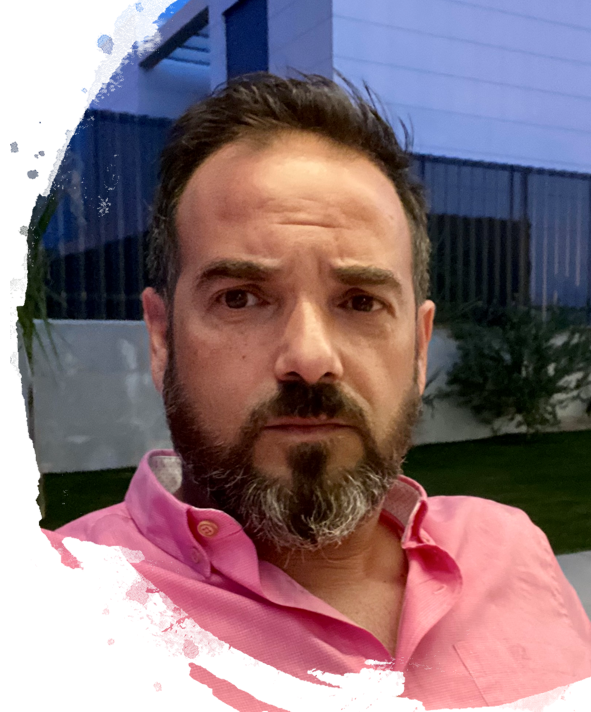
BEATRIZ MAYHEW MANCHÓN (Spain)
graduated in Psychology from the University of Murcia and qualified as a health psychologist by the Ministry of Health of the Region of Murcia. She has master’s degree in Psychosocial Intervention and Research from the University of Barcelona and is currently training as a family therapist at the School of Family Therapy of the Region of Murcia.
-
- She has worked as a social psychologist with different vulnerable groups and communities, with different profiles and life situations: victims of child sexual abuse, female sex workers, at risk young people, migrants, asylum seekers and/or victims of human rights violations.
- Her academic training, professional experience, and her life path has allowed her to learn and develop a critical, social awareness and commitment, as well as the skills and abilities necessary to share and work in intercultural environments.
- Her work has always been oriented towards social transformation based on the resources, the affordances, and the place of departure of the people she has accompanied, and claiming the urgency of understanding psychosocial phenomena and problems taking into account the intersectionality of categories that operate in them.
- Beatriz is currently part of the professional team of Albores Association, where she works as a psychologist in two projects: the Juntos Sumamos project, working in accompanying families from an intervention and community development approach, and Proyecto Luz, in the area of psychological treatment for victims of child sexual abuse.
- Among her personal interests she highlights her passion for nature, hiking, biking and traveling. She collaborates and participates at the urban community garden in her neighborhood in Murcia, where neighborhood residents and citizents organize social and cultural events, and grow vegetables and plants.
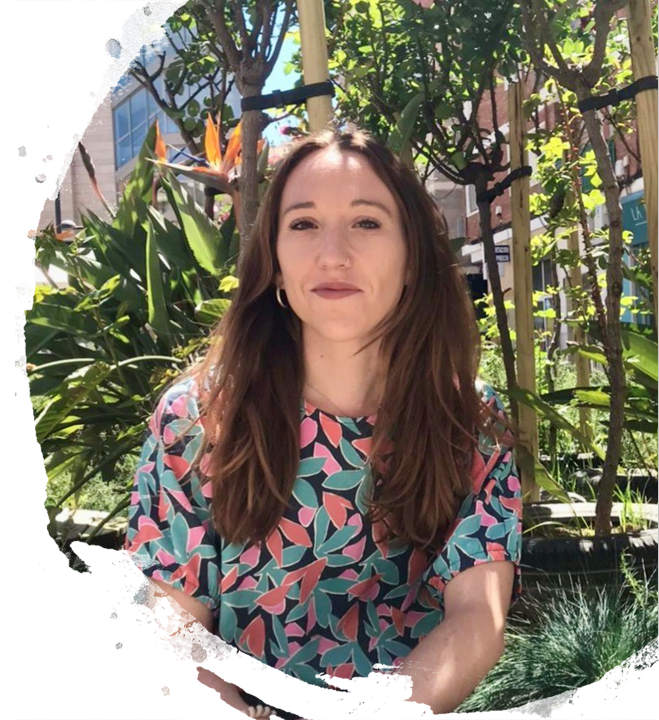
A SYSTEMIC-GROUNDED MODEL FOR INTERVENTION AND COMMUNITY DEVELOPMENT WITH VULNERALISED YOUNG PEOPLE: CONTEXT AS A SAFE BASIS FOR A RESILIENT AND REMEDIAL TRANSFORMATION.
Intervention and community development with at-risk young people entails a change of perspective aimed at providing a holistic and contextualized response to their needs through specialized support. This entails (i) activating community resources serving as transformation agents, assuming the diversity of realities that coexist, and (ii) recovering the capacities of families themselves to both empower them, and promote a resilient resignification of risk experiences.Risk indicators in this population result from complex experiences lived during their neurodevelopment that have not been resolved and that are manifested by significant emotional dysregulation that prevents them from being able to establish healthy and adaptive relationships. Attachment theory suggests that types of insecure attachment behavior will be activated where the world will be seen as a threat.
Establishing the community framework as a safe basis with mentalazing capacity helps repairing the damage caused to vulneralised young people and providing meaning to their life projects.
Keywords: attachment, risk, youth, neurodevelopmental, systemic.
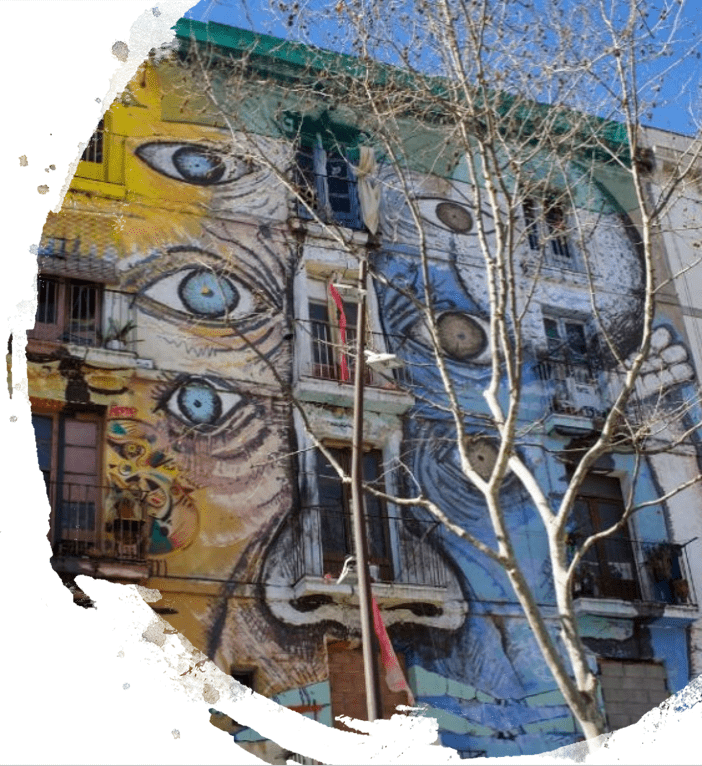
SOPHIE ÁLVAREZ-VIEITEZ (Spain)
is specialist in psychotherapy and psychoeducation, currently heads the Psicosophos cabinet, in which she also practices.
- Sophie holds a Bachelor’s degree in Psychology and a Master’s degree in Clinical Psychology and Psychotherapy.
- Psychologist by vocation, she has been practicing clinical psychology for 15 years and has extensive experience in working with children and adolescents. During these years she has combined her clinical activity with training and psychoeducation in organizations and educational centers, and periodically gives lectures and collaborates with Spanish medias.
- Expert in Psychopathology of Childhood and Adolescence and in Psychotherapy of Abuse, she specializes in the prevention and treatment of both bullying and filioparental violence.
- Sophie is passionate about travel and enjoys learning about other cultures and ways of life. She loves nature and hiking, that’s why she has climbed Kilimanjaro as well as Everest Base Camp. She enjoys almost as much cooking as eating. Also, she collects The Little Prince books in different languages (and is delighted to add Slovenian to her collection).
- For more information www.psicosophos.org and www.linkedin.com/in/sophie-alvarez-vieitez-psicologa
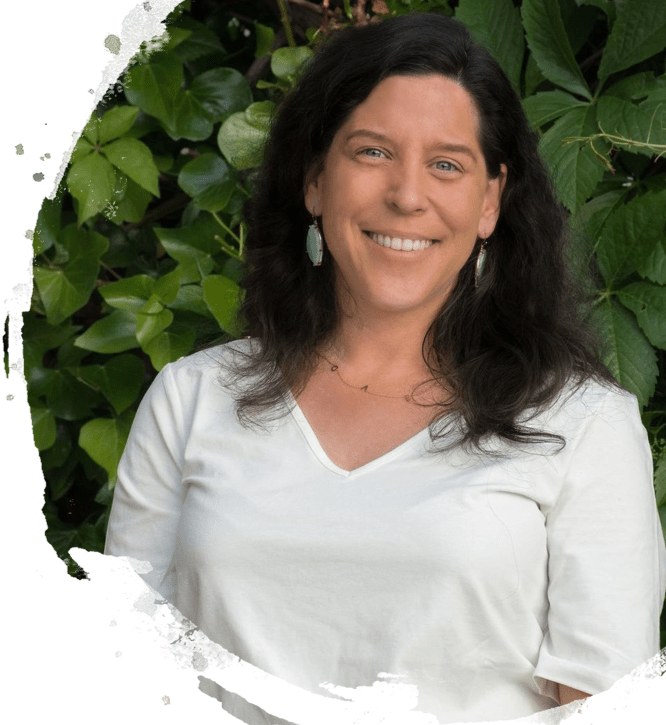
VISUAL THINKING TOOLS AND PROJECTIVE TECHNIQUES TO FACILITATE STORYTELLING AND HEALING IN VULNERABLE GROUPS
Visual t_h_i_n_k_i_n_g_’s_ _tools and projective techniques are wonderful facilitators of storytelling in people of all ages and especially with vulnerable young people, who so often have difficulty initiating processes of help and linking with the responsible adult in the first sessions. The use of these tools is very useful to connect with them and to make them feel truly free when it comes to expressing themselves.
Demolish myths and break prejudices about psychotherapy or other types of therapies and accompaniments, seduces and amuses them, that is why I use images as facilitators of the word: card games with images or photographs that each one interprets from himself, from his own history or experience, ask them to draw their ideas, their emotions, their plans, their blocks.
Starting a session by asking “how are you?” or starting it by saying “draw how you feel” can radically change (and improve) the development of it. Storytelling is basic to healing and that is why we must use everything that facilitates it.
The fact is that the brain processes visual information 60,000 times faster than text, lest`s use this superpower, right?
In my presentation I want to share with you my experience and present some of the tools I use most often so that you can get ideas on how to apply it with the young people with whom you work.
